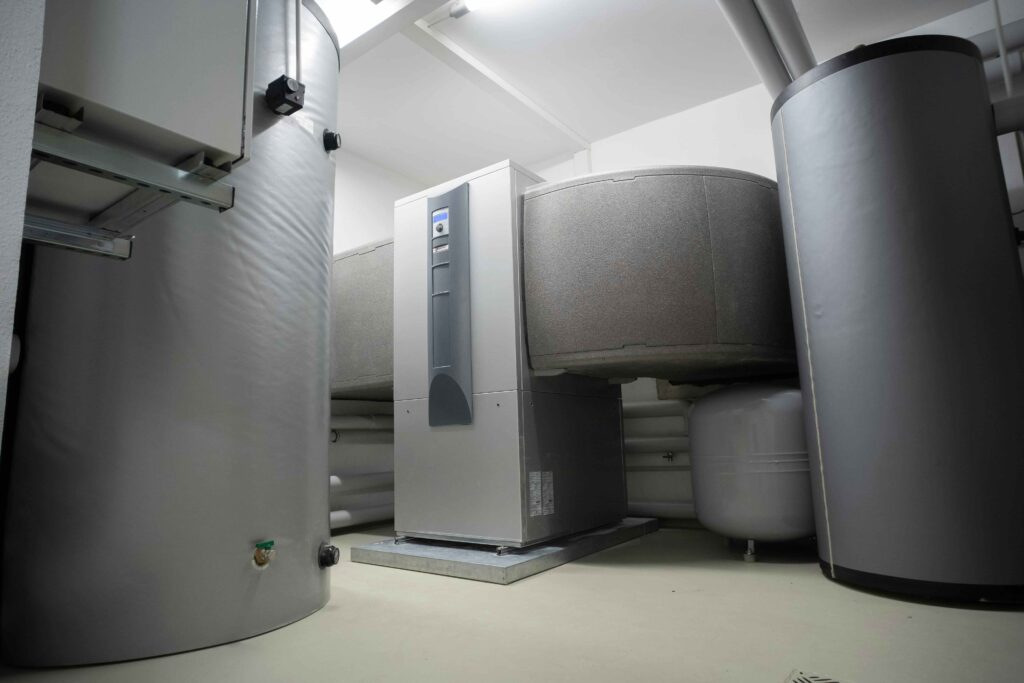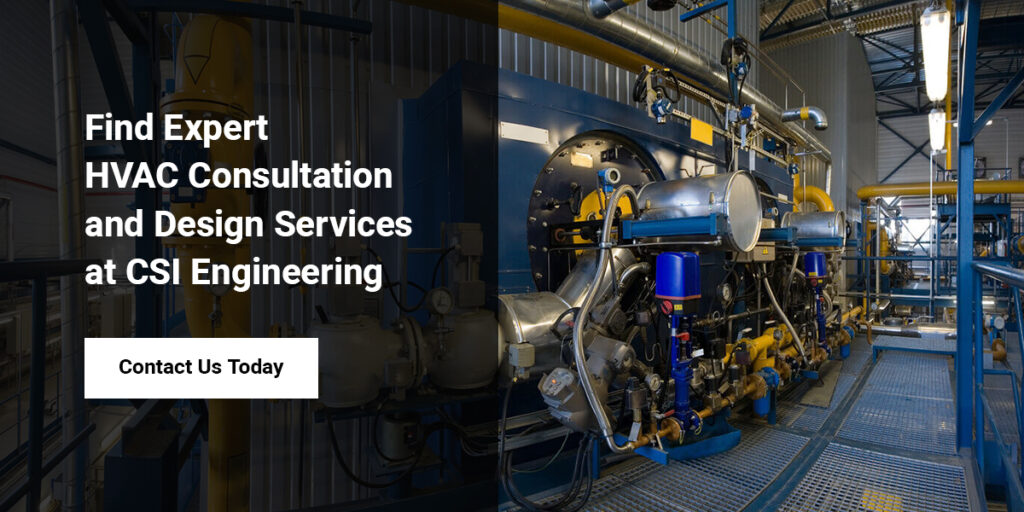


From offices and warehouses to schools and hotels, many commercial properties use commercial heating, ventilation and air conditioning (HVAC) systems to keep their buildings clean and comfortable year-round. HVAC systems have a life span, though, and in older buildings, they are often the first system to go. Learn more about types of commercial cooling systems, how long they last and how CSI Engineering can help when it’s time to replace your system.
Many industries benefit from four main types of HVAC systems for their commercial buildings.
Single-split HVAC systems connect a single indoor unit with a single outdoor unit to heat and cool individual rooms. They are one of the most common HVAC systems on commercial properties since they allow you to control temperatures in different rooms independently, so if one system breaks down, others will remain functional.
Single-splits work best in commercial spaces such as:
While single-split systems are energy efficient for small spaces, they require each indoor unit to pair with an outdoor unit, taking up considerable space. Single-split systems can last 10 to 20 years.
Similar to single-split systems, multi-split systems connect indoor units with outdoor units. A multi-split system connects multiple indoor units with one outdoor unit, saving space and simplifying management. Compressors can run at various speeds to let each indoor unit have its own setting so you can customize room temperatures to your needs.
These systems are ideal for commercial buildings with many rooms or walls, such as:
Multi-split systems require extensive pipework to connect all the indoor units to the outdoor unit, so installation processes may take some time, and upfront costs may be high. These systems generally last around 20 years.
Variable refrigerant flow (VRF), also known as variable refrigerant volume (VRV), is a sophisticated commercial HVAC system that connects many indoor units to a single outdoor unit, much like a multi-split system. It is more powerful, though, using refrigerant as a heating and cooling medium to ensure each zone is effectively and efficiently heated or cooled as needed.
VRF systems are one of the most efficient HVAC systems for office buildings. They work well for mixed-use spaces and facilities that require customized temperatures over multiple zones, such as factories and restaurants.
VRF systems use expensive equipment, including a backup condenser, and they can take up a significant amount of space. While they can function in large buildings, they are not ideal for large indoor assembly spaces. VFR systems tend to last 10 to 15 years.
Packaged air conditioners use an all-in-one design, incorporating all necessary HVAC parts into one packaged unit. These systems are often mounted on the roof or outside the building, reducing operating noises. Packaged air conditioner HVAC works in large buildings by spreading air through ducts in the ceiling.
These industrial HVAC systems are ideal for spaces such as:
Since these systems require ductwork, they are less flexible than other HVAC systems. Installation costs may vary, and refrigerant expenses add up. These units are also highly sensitive to blocked air filters. Commercially packaged air conditioners last about 15 to 20 years.
If you have an older building, there may be other complications causing issues in addition to your aging HVAC system. CSI Engineering has extensive experience working with HVAC for industrial facilities, so you can trust our expert engineers to look at your entire system, identify the best solutions for improving performance and recommend the ideal HVAC system for your property. Request a portfolio or contact us today to get started.
